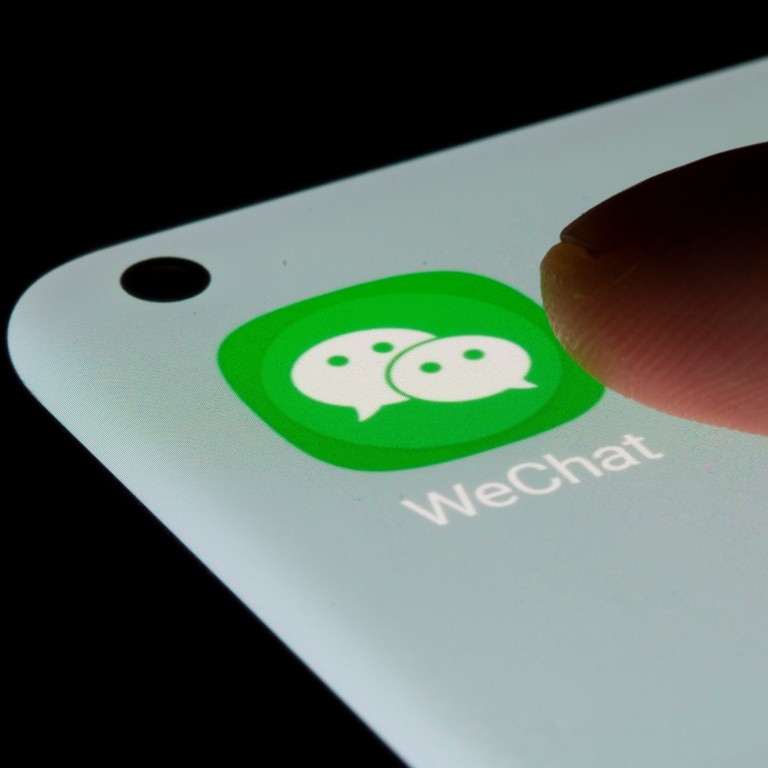
Tencent’s WeChat bans public accounts from providing secondary trading services for NFTs
- Tencent says it will punish public accounts that provide transaction channels, guidance, or issue cryptocurrencies
- Tencent is acting preemptively to keep itself out of trouble, Trivium China analyst Bao Linghao says
Tencent said it will “order accounts to rectify if they provide relevant services or content for secondary trading of digital collectibles, and limit some features or even ban the account”, depending on the severity of the cases.
The Chinese tech giant also detailed punishment for accounts that provide transaction channels, provide guidance, or issue cryptocurrencies to users. Accounts that enable initial coin offerings and transactions of cryptocurrency derivatives will also come under its purview.

NFTs are often referred to as digital collectibles in China. China’s digital collectibles are built on consortium blockchains, which is a form of blockchain that can be centrally controlled, different from open blockchains such as ethereum. Moreover, digital collectibles must be bought using Chinese yuan under real identities to “avoid money laundering”, the April guidelines said.
It is not the first time that WeChat, the multipurpose app with 1.3 billion monthly active users, has banned public accounts in the digital collectible space under regulatory pressure.
WeChat said that accounts that display digital collectibles and primary transactions would need contracts with blockchain companies certified by the Cyberspace Administration of China (CAC), and would not support secondary trading. The rules for WeChat mini programs were similar to those for the public accounts.
Consortium blockchains built by Big Tech firms including Alibaba Group Holding, Tencent, Baidu and JD.com were among the first blockchain service providers approved by the CAC in 2019. Alibaba owns the South China Morning Post.
Can Hong Kong’s bet on NFT and metaverse usher in the next ‘Octopus moment’?
“The new rule’s emphasis is on the narrative that the secondary market for trading digital collectibles might incur speculation and [lead to] instability of the financial market,” said Wang Yinying, a Shanghai-based lawyer focused on blockchain and Web3, referring to the joint statement issued by the National Internet Finance Association of China, China Banking Association and the Securities Association of China in April to curb risks associated with digital assets.
The new WeChat rule should not affect digital collectible holders or buyers, she said, adding that as Tencent was one of the biggest social media companies in China and a member of the Chinese National Internet Finance Association, it was making its position clear and that other major social platforms could soon follow suit.


